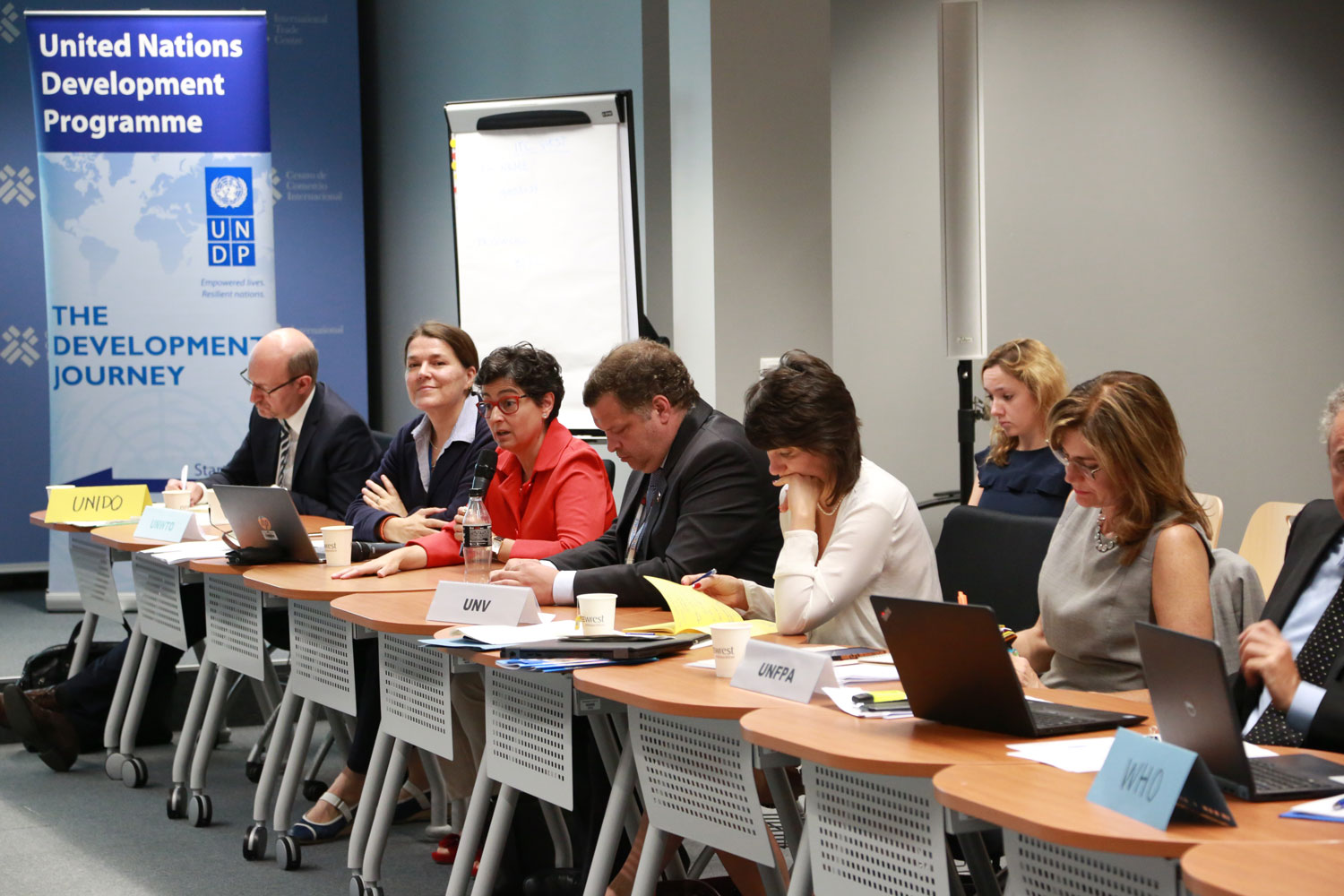Our Director, Maria Luisa Silva & ITC Executive Director, Arancha Gonzalez talked new UN Country Platforms; a recognition that no issue can be solved by a single development actor.
UN System Consultation for Country Support Platforms
August 7, 2018
--- Image caption ---
Geneva, Switzerland - Given the complexity and scale of today’s challenges, from rapid urbanisation to heightened inequality and climate change, and the recognition that such interconnected and structural problems cannot be solved by any single actor, UNDP is looking to introduce country support platforms designed to broaden collaboration within and across government and society, bringing in non-traditional partners to mobilize social energy, capital and capacities.
On 16 July 2018, the UNDP organized a consultation to introduce and receive feedback on Country Support Platforms from UN partner agencies, regarding the key features and operational modalities needed to establish them successfully.
Hosted by the International Trade Centre (ITC), the consultation brought together representatives of 17 UN entities who exchanged views and provided practical suggestions for refining the concept and bringing platforms to life. A similar consultation took place in New York on 19 July.
UNDP is taking this initiative to fulfil the mandate provided by its Executive Board in the adoption of the Strategic Plan 2018-2022 and the General Assembly Resolution 72/279; both of which make explicit reference to UNDP’s function as an integrator and support platform of the UN development system, to help design and deliver solutions to complex development problems.
Country support platforms will be established as a service of the UN and UNDP to partner countries, to tackle systemic and multidimensional development challenges, working with partners within and beyond the UN in achieving the Sustainable Development Goals (SDGs).
Country support platforms are expected to share some essential features while adapting their structure, scale and timeframe to the context in which they are established. Some of these essential features include:
- Addressing multidimensional challenges that are complex, persistent, and difficult to solve through the scale and reach of traditional, mostly sector-based, modalities or projects;
- Capitalising on ‘network effects by bringing in non-traditional partners – especially from the private sector and civil society;
- Facilitating a range of mutually beneficial and autonomous transactions, from the exchange of knowledge and skills, to data-sharing, matching of capital with opportunities for socially responsible investing, and much more;
- Using research and innovative techniques such as futures thinking and scenario-planning to test new methods and solutions;
- Expanding the scale and quality of resources – financial, technical, material - flowing into a country, or mobilised within it, to address complex problems.
Once the designed process completed, prototyping at country level is expected.

 Locations
Locations

